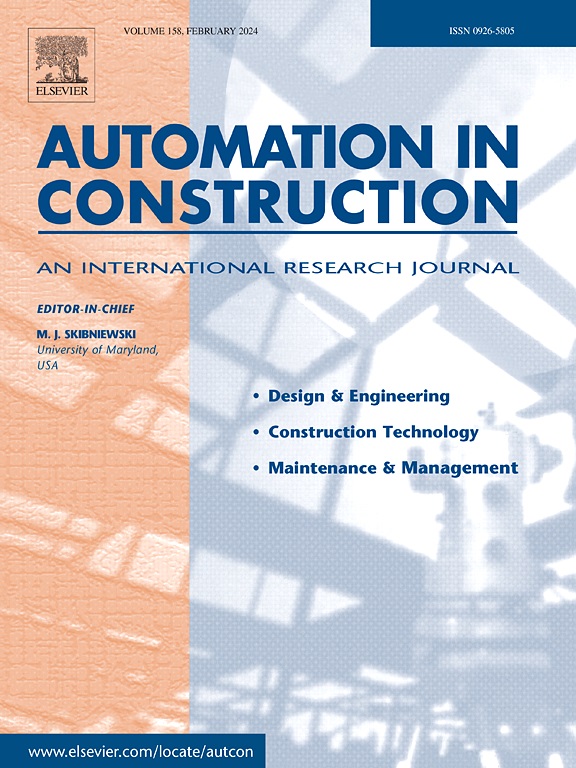Predicting and managing risk interactions and systemic risks in infrastructure projects using machine learning
IF 11.5
1区 工程技术
Q1 CONSTRUCTION & BUILDING TECHNOLOGY
引用次数: 0
Abstract
Infrastructure projects often encounter performance challenges, such as cost overruns and safety issues, due to complex risk interactions and systemic risks. Existing literature treats risk interactions and systemic risks separately and relies on models that struggle with nonlinearities, adaptability, and practical applications, leading to suboptimal risk management. To address this gap, this paper uses machine learning (ML) algorithms to analyze historical project data and predict the impacts of risk interactions and systemic risks on future projects. The results show that ML-based models provide accurate and practical data-driven predictions of project performance under risk interactions and systemic risks. These findings are valuable for infrastructure project managers seeking to improve risk mitigation strategies and project outcomes. The paper lays also the foundation for future research on leveraging advanced predictive analytics in managing complex project risks more effectively.
利用机器学习预测和管理基础设施项目中的风险互动和系统性风险
由于复杂的风险相互作用和系统性风险,基础设施项目经常会遇到绩效挑战,如成本超支和安全问题。现有文献将风险相互作用和系统性风险分开处理,并依赖于难以解决非线性、适应性和实际应用问题的模型,从而导致了次优的风险管理。为了弥补这一不足,本文使用机器学习(ML)算法分析历史项目数据,预测风险相互作用和系统性风险对未来项目的影响。研究结果表明,基于 ML 的模型可以对风险相互作用和系统性风险下的项目绩效进行准确、实用的数据驱动预测。这些发现对于寻求改善风险缓解策略和项目成果的基础设施项目经理来说非常有价值。本文还为今后研究如何利用先进的预测分析技术更有效地管理复杂的项目风险奠定了基础。
本文章由计算机程序翻译,如有差异,请以英文原文为准。
求助全文
约1分钟内获得全文
求助全文
来源期刊

Automation in Construction
工程技术-工程:土木
CiteScore
19.20
自引率
16.50%
发文量
563
审稿时长
8.5 months
期刊介绍:
Automation in Construction is an international journal that focuses on publishing original research papers related to the use of Information Technologies in various aspects of the construction industry. The journal covers topics such as design, engineering, construction technologies, and the maintenance and management of constructed facilities.
The scope of Automation in Construction is extensive and covers all stages of the construction life cycle. This includes initial planning and design, construction of the facility, operation and maintenance, as well as the eventual dismantling and recycling of buildings and engineering structures.
 求助内容:
求助内容: 应助结果提醒方式:
应助结果提醒方式:


